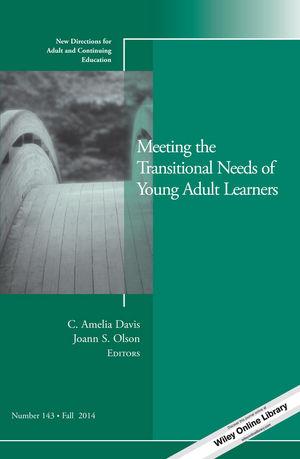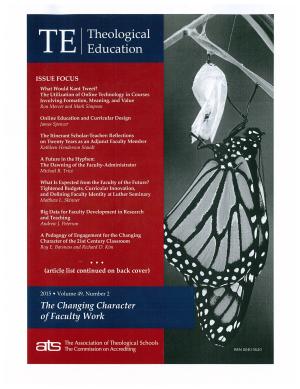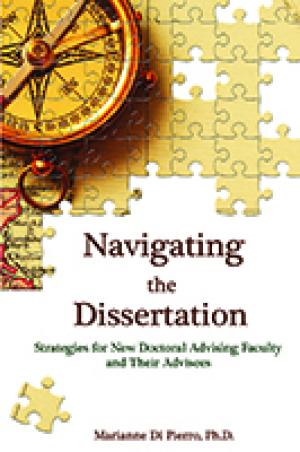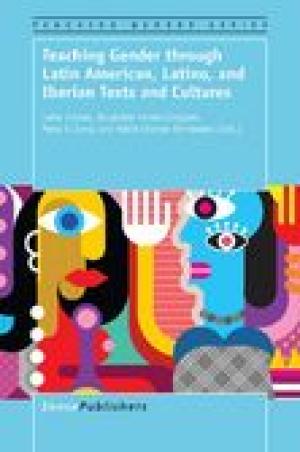Resources

Click Here for Book Review Abstract: Based on the authors’ experiences in academe over seventy-five years, The Higher Education Scene in America: Some Observations discusses a number of issues that confront America’s higher education scene today. Those issue embrace such problems as: (1) the missions(s) of our colleges and universities and the development of critical thinking and/or employability; (2) the role of for-profit academic institutions; (3) the impact of online technology; (4) diffusion of power and achievement of consensus between administrators and faculty; (5) the importance of financial matters, embracing budgets, fundraising, and endowments; (6) the insidious problem of conflicts of interest; (7) the scandalous impact of big-time, big-money Division 1 sports on academe; (8) the growth of non-academic functions; and (9) the importance of leadership in consensual institutions and how leaders are chosen. (From the Publisher)

Click Here for Book Review Abstract: This is the first New Directions volume related to young adult learners since 1984. Then, as now, young adults are an important segment of the adult population but have received scant attention in the adult education literature. Increasingly, youths and young adults are enrolling in adult education programs and in doing so are changing the meaning of adulthood. Given the significant demographic, technological, and cultural shifts during the past 30 years, there is an increasing need for practitioners and program planners to reconsider what constitutes “adult” and “adult education.” An understanding of the changing meaning of adulthood is fundamental to developing programs and policies that will address the needs of younger learners, and we believe it is time for an updated discussion among adult educators and scholars in other disciplines. This sourcebook is designed to reignite the discussion related to meeting the educational needs of young adults along with a timely and interdisciplinary discussion that highlights the transitional needs of young adult learners. This is the 143rd volume of the Jossey Bass series New Directions for Adult and Continuing Education. Noted for its depth of coverage, it explores issues of common interest to instructors, administrators, counselors, and policymakers in a broad range of education settings, such as colleges and universities, extension programs, businesses, libraries, and museums. (From the Publisher)
The Center for Internationalization and Global Engagement has collected examples of policies, programs, surveys, and other resources according to the six aspects of the CIGE Model for Comprehensive Internationalization, and are provided as models for other colleges and universities as they pursue their internationalization goals.

Journal Issue.

Journal Issue. Full text is available online.
Vanderbilt University’s very helpful and brief overview of metacognition (“thinking about one’s thinking”) with helpful references throughout and good ideas for helping students put it into practice.

Journal Issue.
Wabash Center blog spot with periodic postings from a variety of contributors on the teaching life and classroom practices.

Click Here for Book Review Abstract: This book examines the intricacies of the doctoral educational process and delineates a process for continuous improvement that will shape and enhance better professional relationships between dissertation advisors and their advisees and cultivate opportunities for increased retention and graduation. The book includes critical principles, interwoven with students’ real life experiences which serve as illustrative vehicles. Moreover, its innovative approach – a book written for new advisors and their advisees or for seasoned advisors seeking new ways to communicate with their advisees – departs from other books that provide generally only a one-dimensional view, usually from the student’s perspective. The titles of many of these are couched in metaphors of survival and overcoming a threat, rather than centered in strong initiatives that will lead to timely graduation in a supportive and encouraging environment. This book offers innovative and pioneering leadership approaches to transport advisors and advisees to a successful outcome. (From the Publisher)

Teaching Gender through Latin American, Latino, and Iberian Texts and Cultures provides a dynamic exploration of the subject of teaching gender and feminism through the fundamental corpus encompassing Latin American, Iberian and Latino authors and cultures from the Middle Ages to the 21st century. The four editors have created a collaborative forum for both experienced and new voices to share multiple theoretical and practical approaches to the topic. The volume is the first to bring so many areas of study and perspectives together and will serve as a tool for reassessing what it means to teach gender in our fields while providing theoretical and concrete examples of pedagogical strategies, case studies relating to in-class experiences, and suggestions for approaching gender issues that readers can experiment with in their own classrooms. The book will engage students and educators around the topic of gender within the fields of Latin American, Latino and Iberian studies, Gender and Women’s studies, Cultural Studies, English, Education, Comparative Literature, Ethnic studies and Language and Culture for Specific Purposes within Higher Education programs. “Teaching Gender through Latin American, Latino, and Iberian Texts and Cultures makes a compelling case for the central role of feminist inquiry in higher education today … Startlingly honest and deeply informed, the essays lead us through classroom experiences in a wide variety of institutional and disciplinary settings. Read together, these essays articulate a vision for twenty-first century feminist pedagogies that embrace a rich diversity of theory, methodology, and modality.” – Lisa Vollendorf, Professor of Spanish and Dean of Humanities and the Arts, San José State University. Author of The Lives of Women: A New History of Inquisitional Spain “What is it like to teach feminism and gender through Latin American, Iberian, and Latino texts? This rich collection of texts … provides a series of insightful and exhaustive answers to this question … An essential book for teachers of Latin American, Iberian and Latino/a texts, this volume will also spark new debates among scholars in Gender Studies.” – Mónica Szurmuk, Researcher at the National Scientific and Technical Research Council of Argentina. Author of Mujeres en viaje and co-editor of the Cambridge History of Latin American Women’s Literature (From the Publisher)
Wabash Center Staff Contact
Sarah Farmer, Ph.D
Associate Director
Wabash Center
farmers@wabash.edu